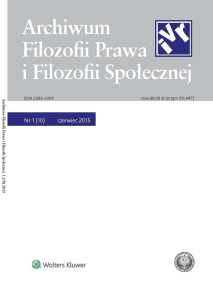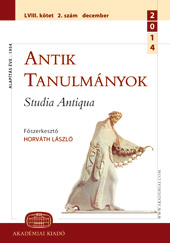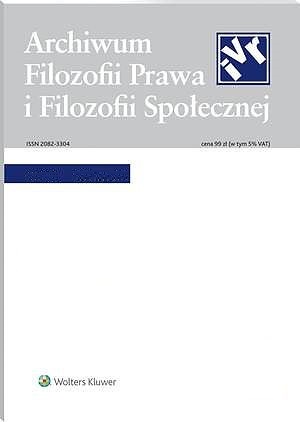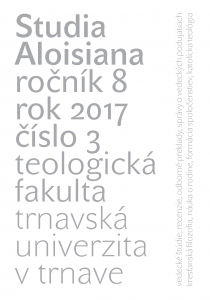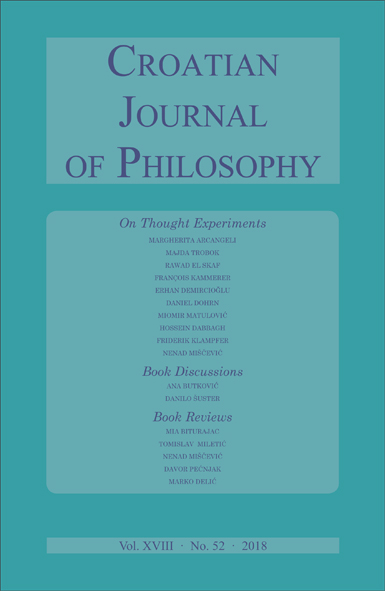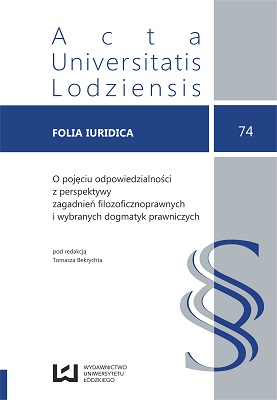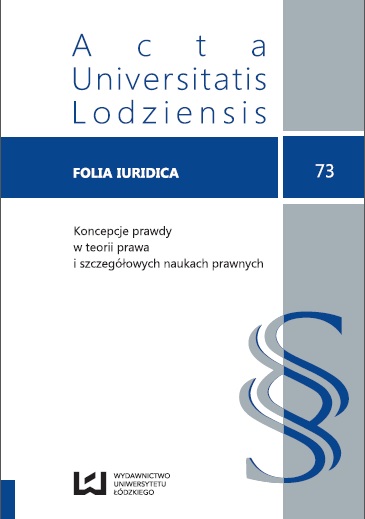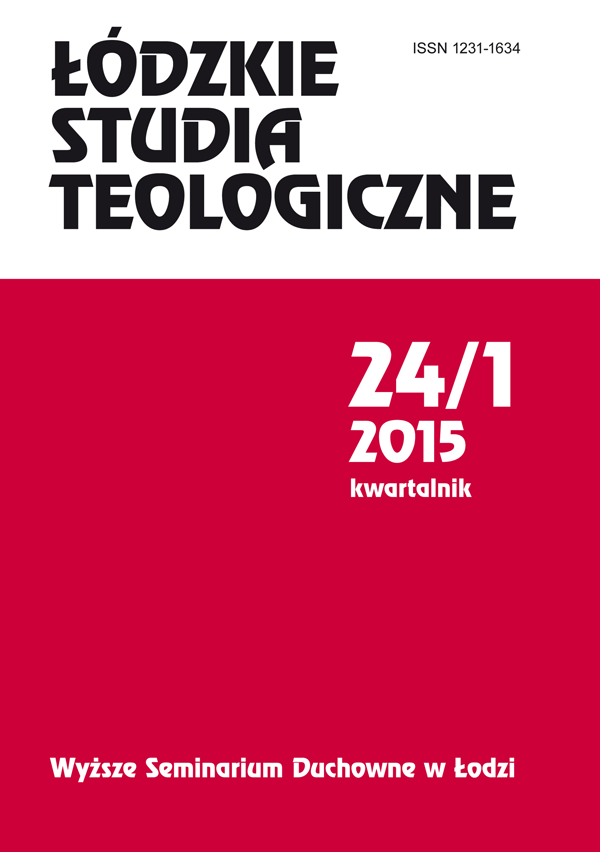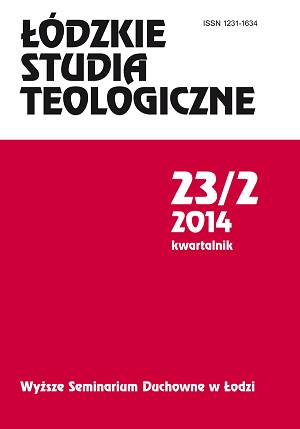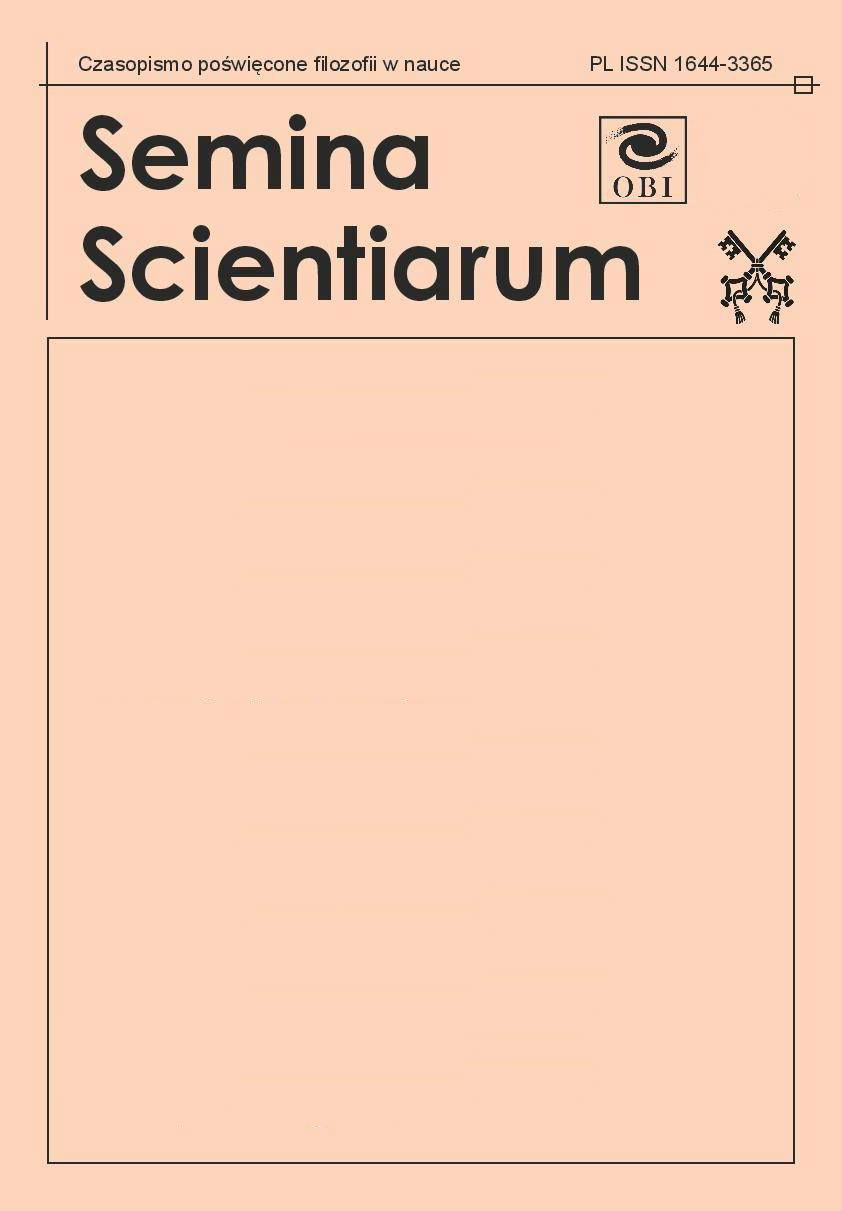
Davida Lewisa koncepcja fikcyjnego stanu rzeczy jako opisu świata możliwego a problem statusu norm prawnych
The character of norms is a relevant issue in the contemporary legal philoso- phy and in the metaethics. The analysis of Lewis’ sugguestions concerning the ctional statements (sentences “describing” the ction) prima facie may seem to be useless from the perspective of law. However, the situation is different, due to the fact that it is possible to treat the legal text as the description of possible world. The issue is analyzed in the paper.
More...
